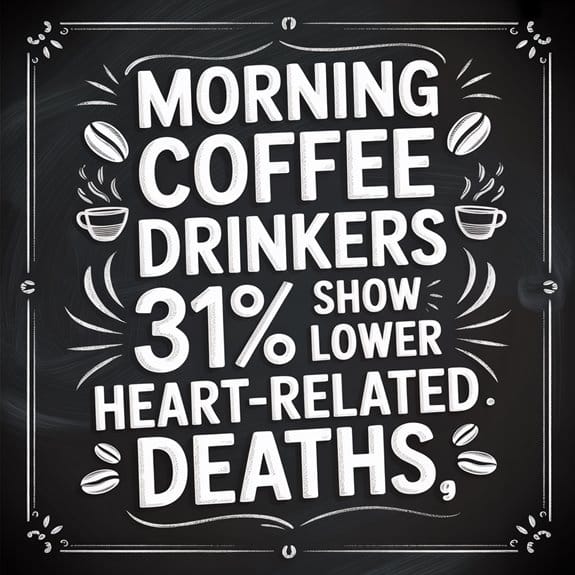While millions start their mornings with a steaming cup of coffee, new research shows how daily habits might shape health outcomes. Studies suggest moderate coffee intake—around three to four cups daily—lowers the risk of heart disease and early death.
Start your day smarter: Research links 3–4 daily cups of coffee to lower heart disease risk and longer life.
But drinking it all day might cancel some benefits: those who finish their coffee by morning see a 16% lower risk of death in general and 31% lower heart-related deaths compared to those sipping into the afternoon.
How coffee’s prepared matters too. Boiled brews like Italian moka pots or French press can raise cholesterol, possibly increasing heart risks compared to filtered methods. The French Press method, in particular, is known for producing a bolder and richer flavor profile, but it may contribute to higher cholesterol levels due to the retention of oils. Coffeehouse drinks loaded with syrups, sugar, or whipped cream add empty calories and saturated fats, undercutting coffee’s natural advantages. Improper storage, such as leaving beans exposed to light or air, can degrade protective antioxidants in coffee, diminishing its potential health benefits.
Decaf offers similar benefits without caffeine’s side effects, which include jitters or trouble sleeping for sensitive people. Overdoing caffeine doesn’t always help. While three to five cups daily reduce risks for diabetes and some cancers, exceeding four cups brings no extra heart protection.
Certain studies even link drinking more than two cups of boiled coffee to higher heart disease risk. Pregnant women should cap caffeine at two cups daily to avoid pregnancy complications.
Coffee timing also plays a role. Morning coffee drinkers had reduced mortality risks compared to those consuming it later in the day, according to a 2025 study of over 40,000 adults. Its natural alertness increase can disrupt sleep if consumed late, worsening long-term health. For those with high blood pressure or anxiety, caffeine might worsen symptoms despite coffee’s potential to lower hypertension risks in moderate drinkers.
Research links regular coffee to lower odds of liver cancer, skin cancer, and endometrial cancer, likely due to antioxidants. Yet these benefits hinge on avoiding additives that spike calorie intake.
While three to five cups a day show broad health advantages, individual tolerance varies—some may need less to avoid side effects.
In the end, coffee’s health impact isn’t just about how much you drink, but how and when. Small choices—like skipping sugary extras or switching brewing methods—could determine whether your habit helps or harms.





